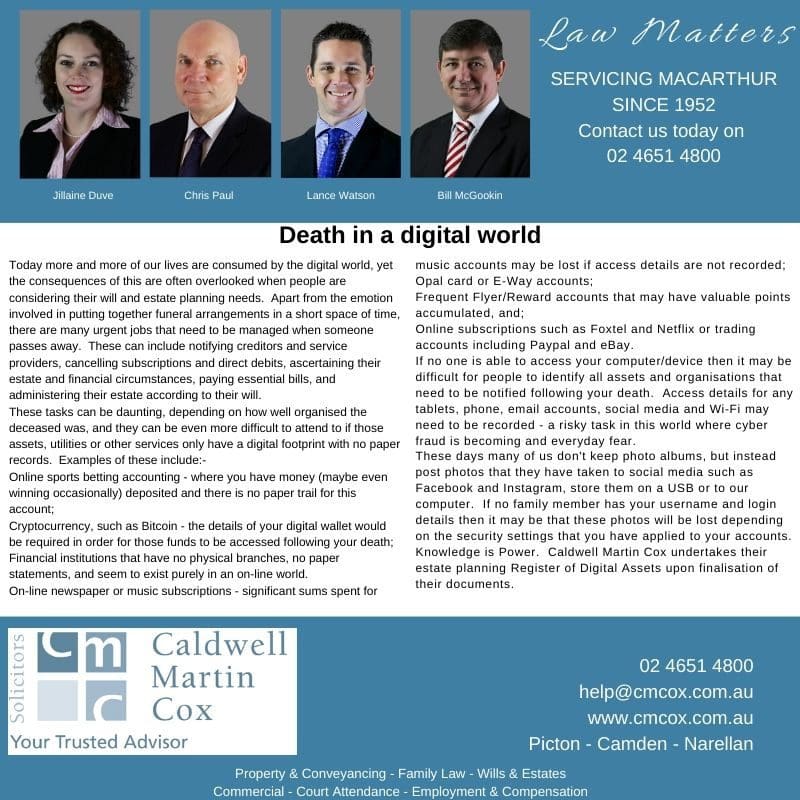In this technological world, we sometimes overlook the consequences for our family should we die without making sound plans for our ‘online footprint’. What is a Register of Digital Assets? Why should you have one? In our latest article in The District Reporter, we talk about this as part of getting your Estate Planning in order.
Today more and more of our lives are consumed by the digital world, yet the consequences of this are often overlooked when people are considering their will and estate planning needs. Apart from the emotion involved in putting together funeral arrangements in a short space of time, there are many urgent jobs that need to be managed when someone passes away. These can include notifying creditors and service providers, cancelling subscriptions and direct debits, ascertaining their estate and financial circumstances, paying essential bills, and administering their estate according to their will.
These tasks can be daunting, depending on how well organised the deceased was, and they can be even more difficult to attend to if these assets, utilities or other services only have a digital footprint with no paper records. Examples of these include:
-
Online sports betting accounting – where you have money (maybe even winnings occasionally) deposited and there is no paper trail for this account;
-
Cryptocurrency, such as Bitcoin – the details of your digital wallet would be required in order for those funds to be accessed following your death;
-
Financial institutions that have no physical branches, no paper statements, and seem to exist purely in an on-line world.
-
On-line newspaper or music subscriptions – significant sums spent for music accounts may be lost if access details are not recorded;
-
Opal card or E-Way accounts;
-
Frequent Flyer/Reward accounts that may have valuable points accumulated; and
-
Online subscriptions such as Foxtel and Netflix or trading accounts including Paypal and eBay.
If no one is able to access your computer/device then it may be difficult for people to identify all assets and organisations that need to be notified following your death. Access details for any tablets, phone, email accounts, social media and Wi-Fi may need to be recorded – a risky task in this world where cyber fraud is becoming and everyday fear.
These days many of us don’t keep photo albums, but instead post photos that they have taken to social media such as Facebook and Instagram, store them on a USB or to our cloud. If no family member has your username and login details then it may be that these photos will be lost depending on the security settings that you applied to your accounts.
Knowledge is Power. Caldwell Martin Cox undertakes their estate planning Register of Digital Assets upon finalisation of their documents.




